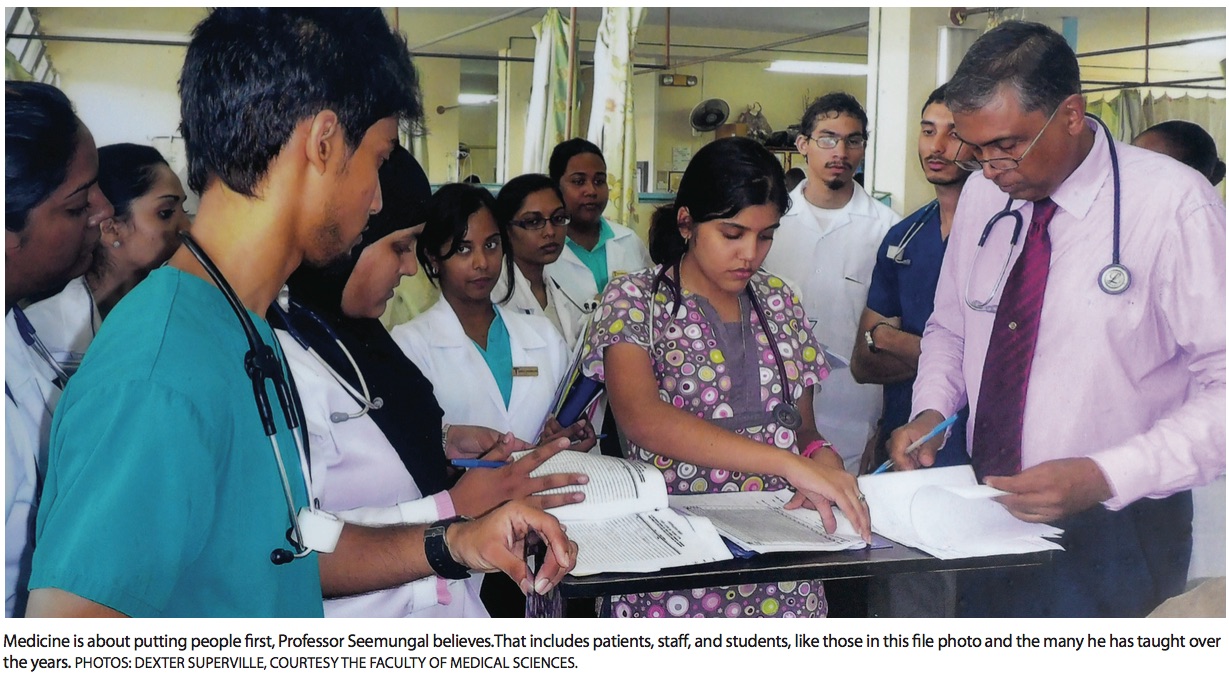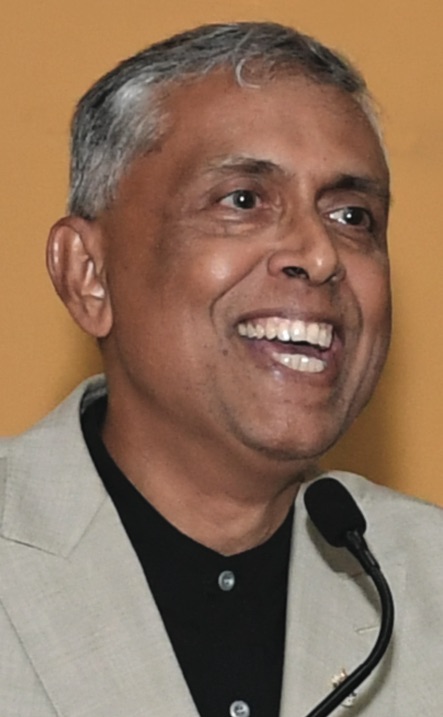Professor Dr Terence Seemungal – educator, academic administrator, and groundbreaking researcher in the area of lung disease—retires as Dean of the Faculty of Medical Sciences

“People outside of the field never thought that I was going to be doing anything terribly important,” Professor Terence Seemungal recalls.
His research would go on to change the way that chronic obstructive pulmonary disease (COPD) would be examined by hyper fixating on the phenomenon of exacerbation. COPD refers to a “group of diseases that cause airflow blockages and breathing-related problems”, as defined by the Centers for Disease Control and Prevention (CDC). Having joined the project in 1995 to investigate causation of the disease, particularly, the study of viruses, Professor Seemungal set about gathering his samples.
A year later, disaster struck. A particularly warm 1996 English summer coupled with the “involuntary warming” of the refrigerator housing the samples, he joked wryly, resulted in unusable data. All the samples were lost. Nevertheless, the young researcher was resilient and delivered on his work.
That commitment – as a researcher, educator, and academic administrator – has served him well throughout the decades of his professional career. This year, after serving eight years as Dean of the Faculty of Medical Sciences, Prof Seemungal retired.
When asked about taking up the role as dean, he mused, “Some people say you get bored with administrative things but administration is all about people and medicine is all about people.”
Appointed in 2015, the post rounded out two decades of service to The UWI, beginning in 2003. Prof Seemungal started as a senior lecturer when he returned from England, and in those 20 years, he has worn many hats and transferred his skills throughout his career.

“It takes a special kind of courage to uproot oneself and go elsewhere,” Prof Seemungal muses on his life journey.
When he left for England in 1993, he remembers feeling angry – simply because he loved his country and his home life and did not want to have to leave them to pursue his doctorate.
Moreover, his reception into the medical space in England was cold and laced with distrust. More familiar with Dwight Yorke than with graduates of The University of the West Indies, the ambitious young man would have to prove his abilities, irrespective of his honours degrees in Mathematics, and Chemistry and Medicine.
“Medicine is a funny thing,” he explains, “people don’t trust you just like that, and you can’t expect it because you’re dealing with people’s lives.”
However, despite these challenges, he was focused on his studies. And that focus would propel him to the forefront of lung disease research.
“When I got into the field,” he noted, “the general view was that people [with COPD] had periodic worsening of the symptoms called exacerbations, but these things didn’t mean much.”
The loss of his samples lengthened the process of his research. This would cause a further financial strain for Seemungal, a self-funded researcher. With no preliminary results to show the value of the research and secure funding grants, he combed the database. With a sharp eye, he discovered a relationship between the number of exacerbations a person experiences and their quality of life. This was groundbreaking.
Thanks to the astuteness of his supervisor, Professor Jadwiga Wedzicha, the importance of Seemungal’s breakthrough to the field was realised as the paper was written. Professor Wedzicha asserted that this research gave, “for the first time, a way of measuring disease burden in COPD”.
A pioneer in COPD research, Professor Wedzicha guided Seemungal in the research process.
“She would be prepared to discuss anything about COPD with me whether day or night,” he remarks.
His research did not stop there. With 126 publications to date and over 15,000 citations, Professor Seemungal’s contribution to COPD research has been incredible.
Along the way, he learned the lesson well of building relationships and putting people first in medical situations. This approach would form the cornerstone of his practice: on the wards with patient care, in the classroom with his students, and administratively with his staff as Dean of the Faculty of Medicine.
Beyond the campus, Prof Seemungal has held positions such as Honorary Consultant Physician, Founding President of the Thoracic Society of Trinidad and Tobago, President of the Medical Board of Trinidad and Tobago, and what he sees as his greatest career achievement, creating the Caribbean Centre for Health Systems Research and Development (CCHSRD).
Speaking briefly of his home life, Professor Seemungal reminisced on the serenity of growing up in the ‘60s and ‘70s, and attending school at Trinity College, Moka, which first introduced him to his interest in chemistry and mathematics.
However, regardless of the field, his drive was inspired by his uncle, Dr Chandra Madhosingh, whose desire to reach the top of his profession provided the impetus for Professor Seemungal’s pursuit of a PhD in Medicine.
He also is bolstered by the support of his wife, Mrs Jacinta Seemungal, with whom he has been married even before he attended medical school. As outgoing dean, Professor Seemungal still seeks to serve the community and give back to society. After all, his career started with a desire to eliminate at least one disease.
“I wanted to just take it out,” he said.
Who knows what he will do next?